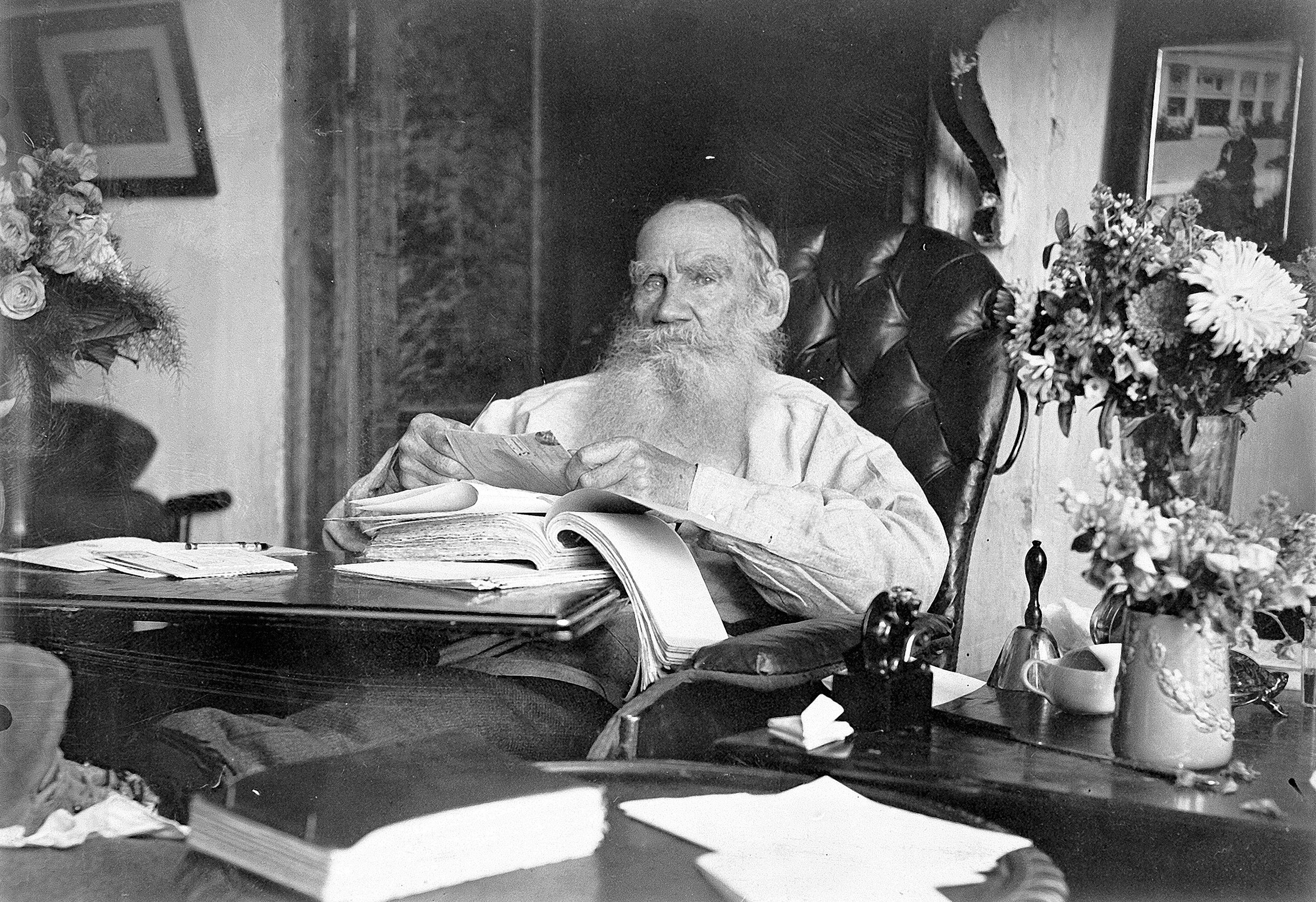Leo Tolstoy Archive
Written: 1904
Source: Original Text from Gutenberg.org
Transcription/Markup: Andy Carloff
Online Source: RevoltLib.com; 2021

There was a time when the Church guided the intellectual life of the men of our world. The Church promised men happiness, and, in compensation for this she freed herself from taking part in mankind's common struggle for life.
As soon as she did this she went away from her calling, and men turned from her. It was not the errors of the Church which originally caused her ruin, but the fact that by the help of the secular power, in the time of Constantine, her ministers violated the law of labor; and then their claim to idleness and luxury gave birth to the errors.
As soon as she obtained this power she began to care for herself, and not for humanity, whom she had taken upon herself to serve. The ministers of the Church gave themselves up to idleness and depravity.
The State took upon itself to guide men's lives. The State promised men justice, peace, security, order, satisfaction of common intellectual and material wants; and, in compensation, men who served the State freed themselves from taking part in the struggle for life. And the State's servants, as soon as they were able to utilize other men's labor, acted in the same way as the ministers of the Church.
They had not in view the people; but, from kings down to the lowest state functionaries, in Rome, as well as in France, England, Russia, and America, they gave themselves over to idleness and depravity. Now men have lost their faith in the state, and anarchy is now seriously advocated as an ideal. The state has lost its prestige among men, only because its ministers have claimed the right of utilizing the people's labor for themselves.
Science and art have done the same, assisted by the state power which they took upon themselves to sustain. They also have claimed and obtained for themselves the right of idleness and of utilizing other men's labor, and also have been false to their calling. And their errors, too, proceeded only from the fact that their ministers, pointing to a falsely conceived principle of the division of labor, claimed for themselves the right to utilize the work of the people, and so lost the meaning of their calling, making the aim of their activity, not the utility of the people, but some mysterious activity of science and art; and also, like their forerunners, they have given themselves over to idleness and depravity, though not so much to a fleshly as to an intellectual corruption.
It is said that science and art have done much for mankind.
That is quite true.
Church and State have given much to humanity, not because they abused their power, or because their ministers forsook the common life of men, and the eternal duty of labor for life—but in spite of this.
The Roman Republic was powerful, not because its citizens were able to lead a life of depravity, but because it could number among them men who were virtuous.
This is the case with science and art.
Science and art have effected much for mankind, not because their ministers had sometimes formerly, and have always at present, the possibility of freeing themselves from labor, but because men of genius, not utilizing these rights, have forwarded the progress of mankind.
The class of learned men and artists who claim, on account of a false division of labor, the right of utilizing other men's labor, cannot contribute to the progress of true science and true art, because a lie can never produce a truth.
We are so accustomed to our pampered or debilitated representatives of intellectual labor, that it would seem very strange if a learned man or an artist were to plow, or cart manure. We think that, were he to do so, all would go to ruin; that all his wisdom would be shaken out of him, and that the great artistic images he carries in his breast would be soiled by the manure: but we are so accustomed to our present conditions that we do not wonder at our ministers of science, that is, ministers and teachers of truth, compelling other people to do for them that which they could very well do themselves, passing half their time eating, smoking, chattering in “liberal” gossip, reading newspapers, novels, visiting theaters; we are not surprised to see our philosopher in an inn, in a theater, at a ball; we do not wonder when we learn that those artists who delight and ennoble our souls, pass their lives in drunkenness, in playing cards, in company with loose women, or do things still worse.
Science and art are fine things: but just because they are fine things men ought not to spoil them by associating them with depravity;—by freeing themselves from man's duty to serve by labor his own life and the lives of other men.
Science and art have forwarded the progress of mankind. Yes; but not because men of science and art, under the pretext of a division of labor, taught men by word, and chiefly by deed, to utilize by violence the misery and sufferings of the people in order to free themselves from the very first and unquestionable human duty of laboring with their hands in the common struggle of mankind with nature.